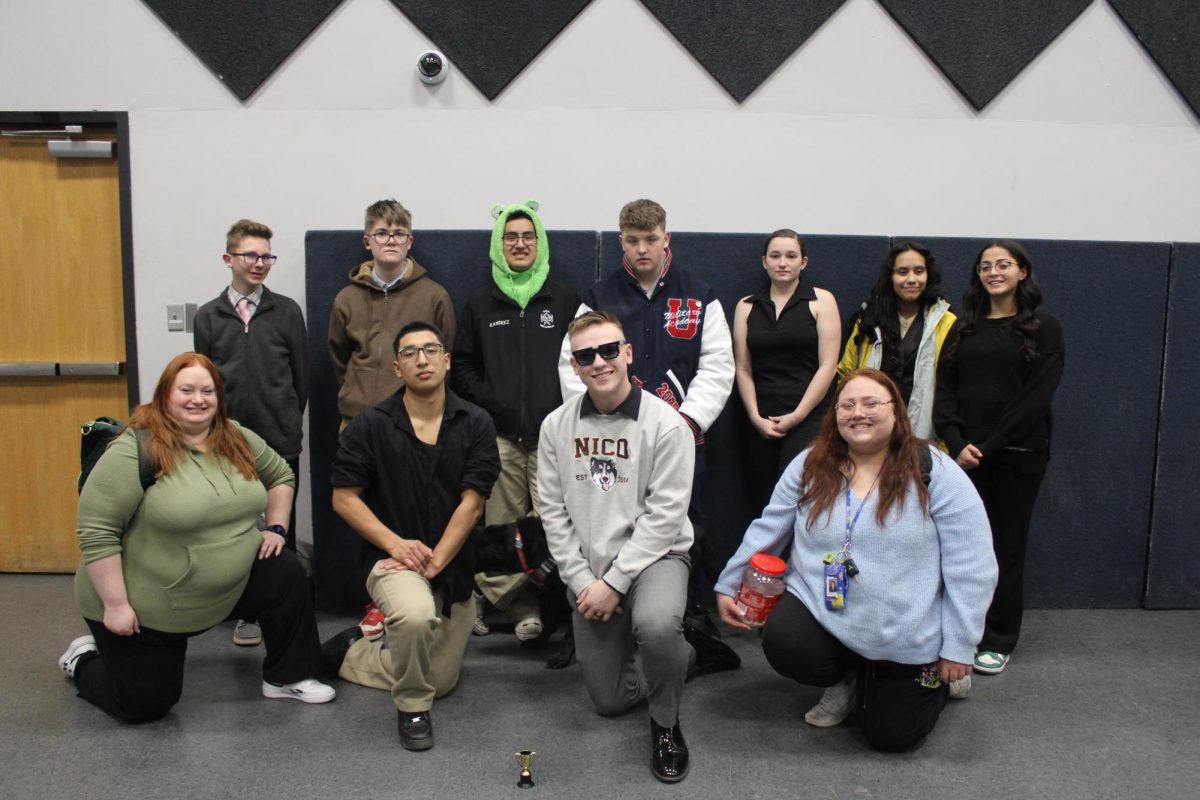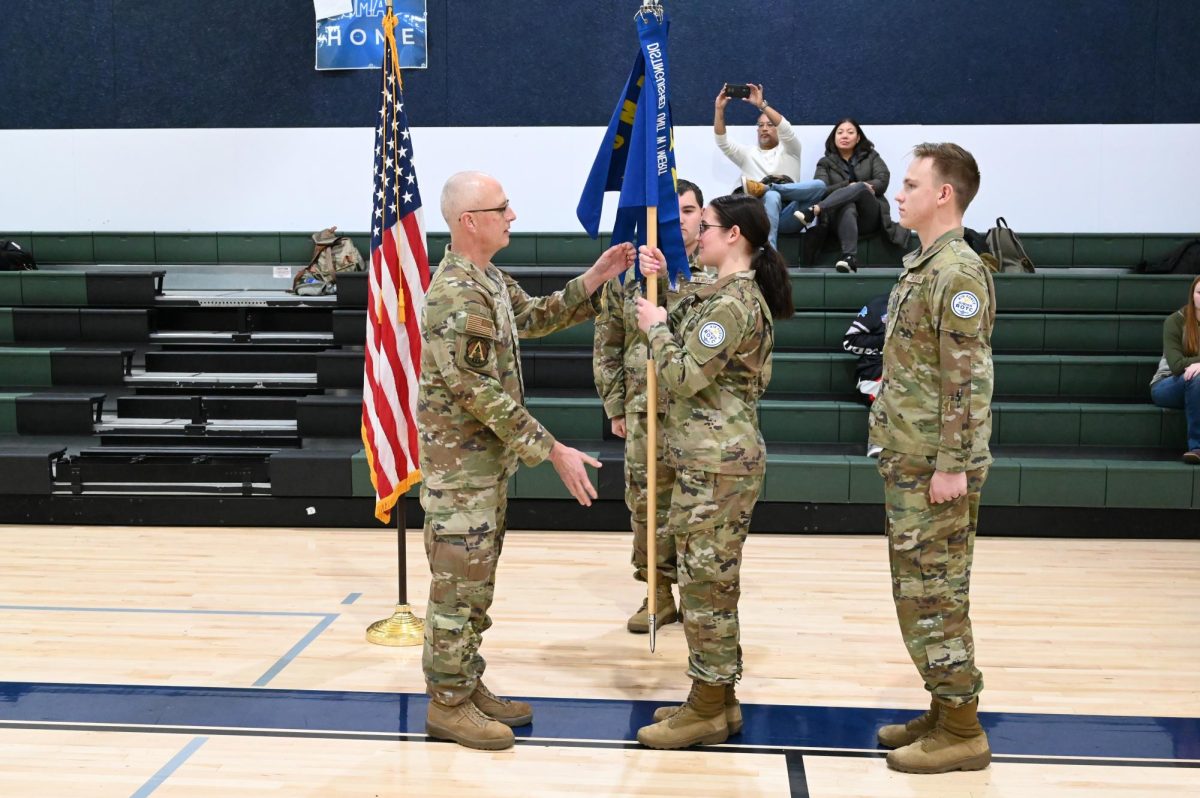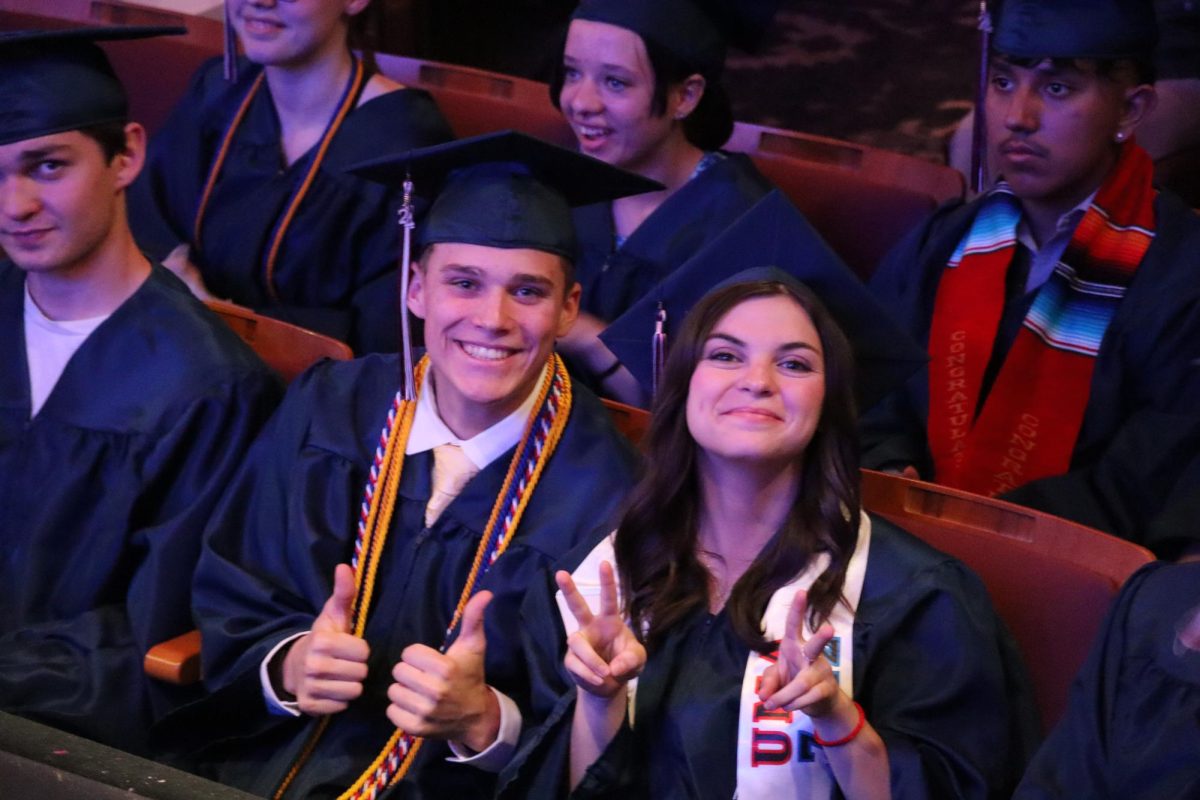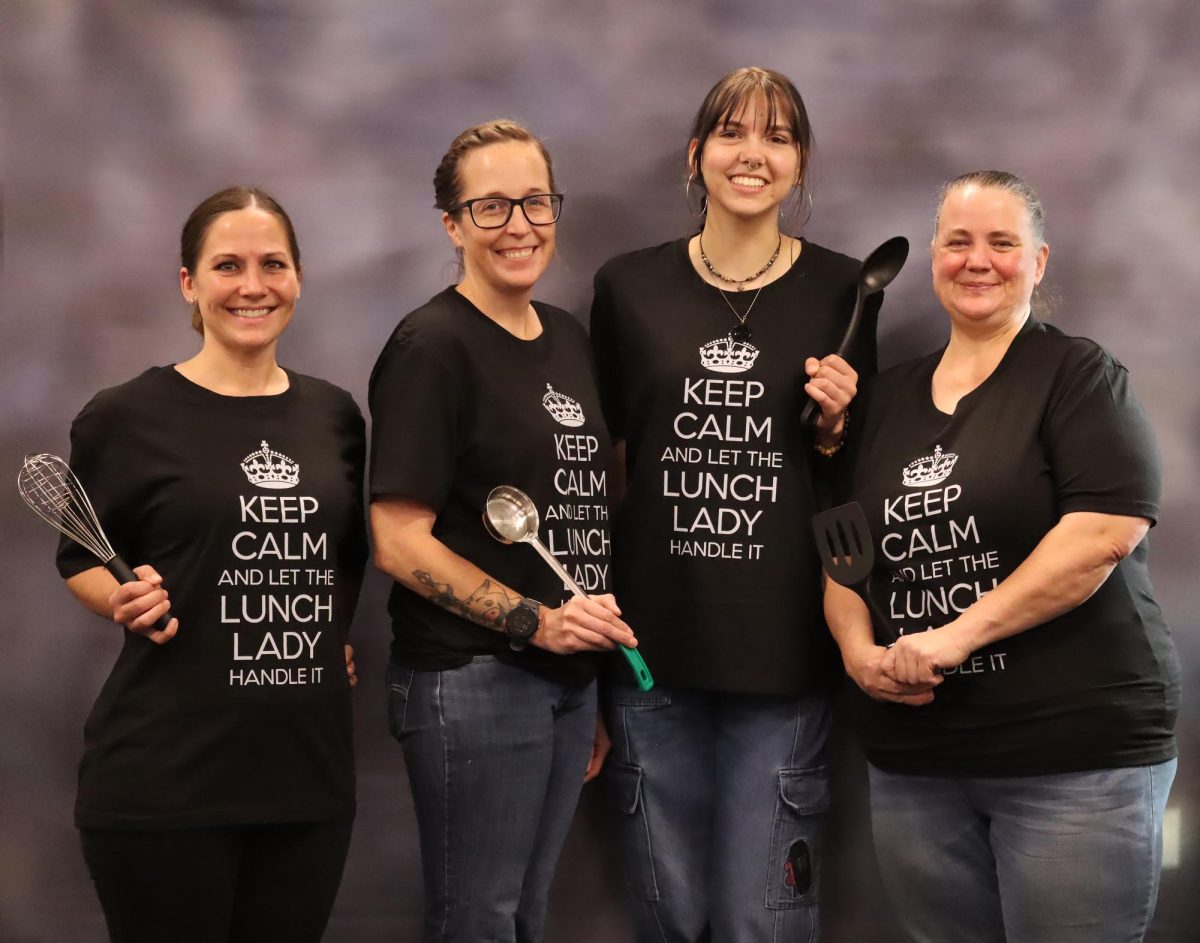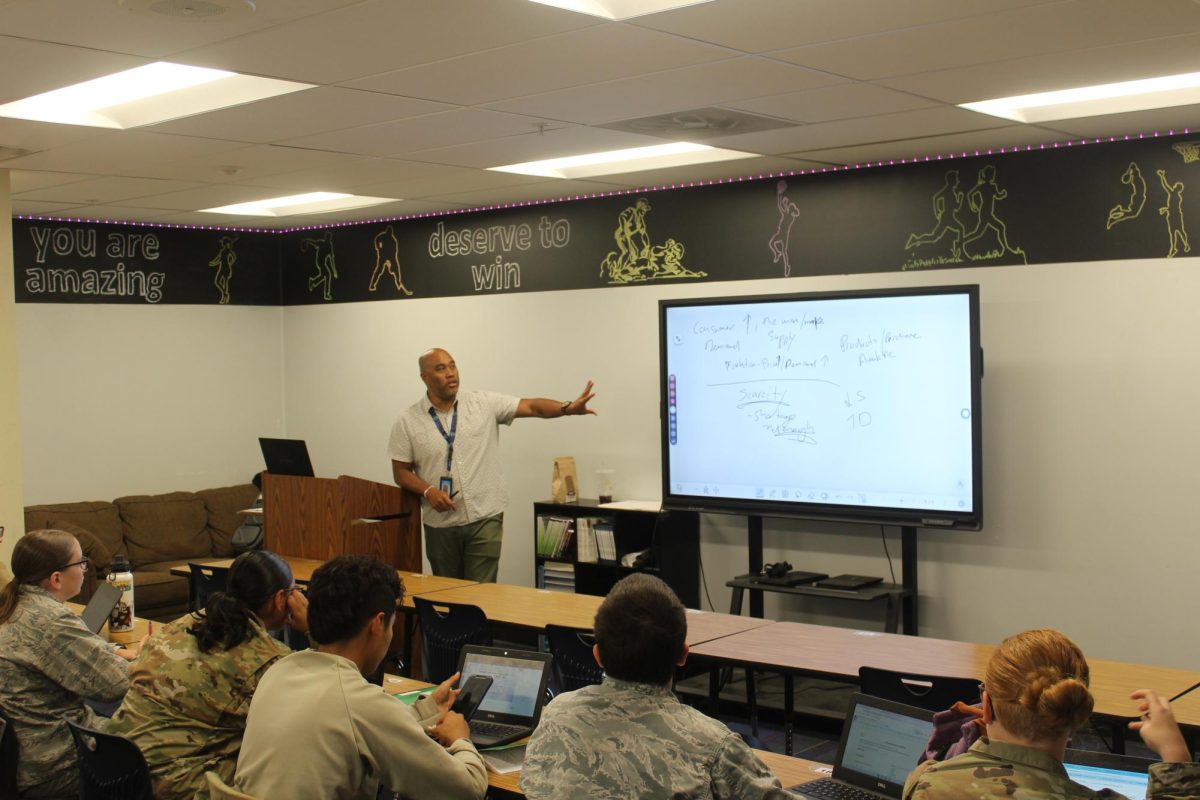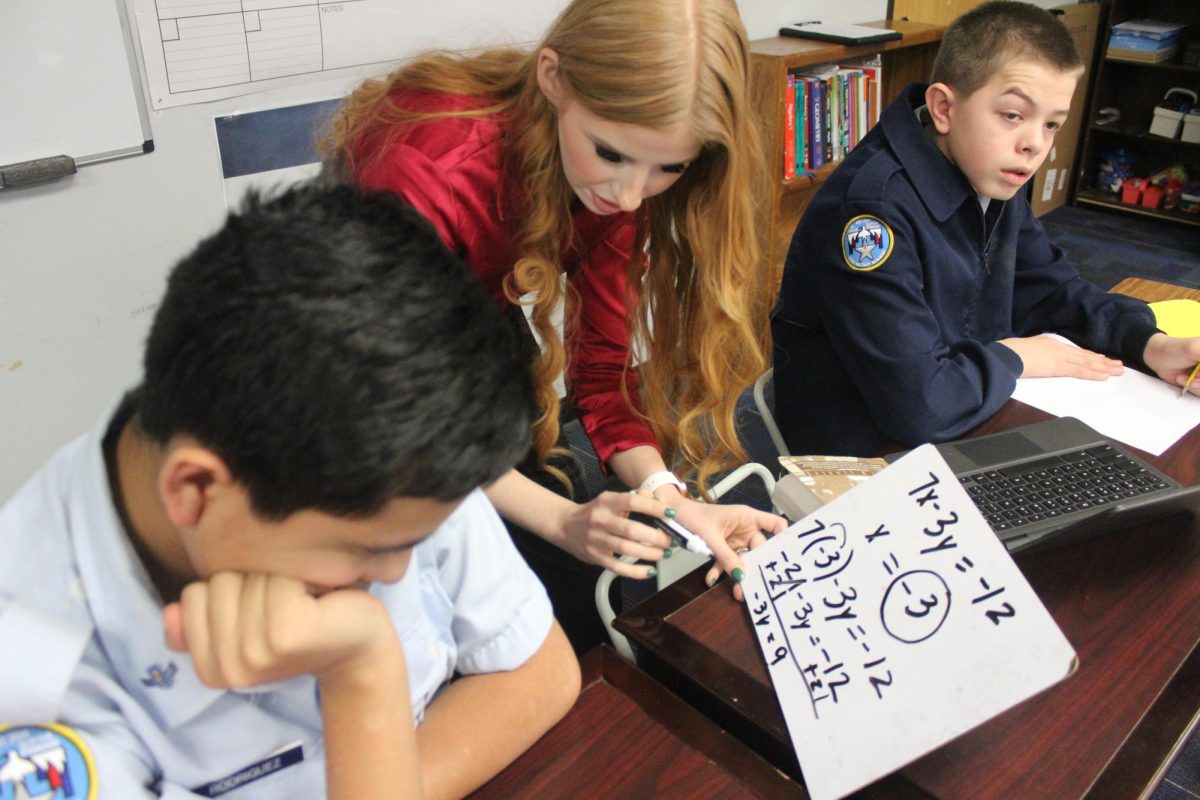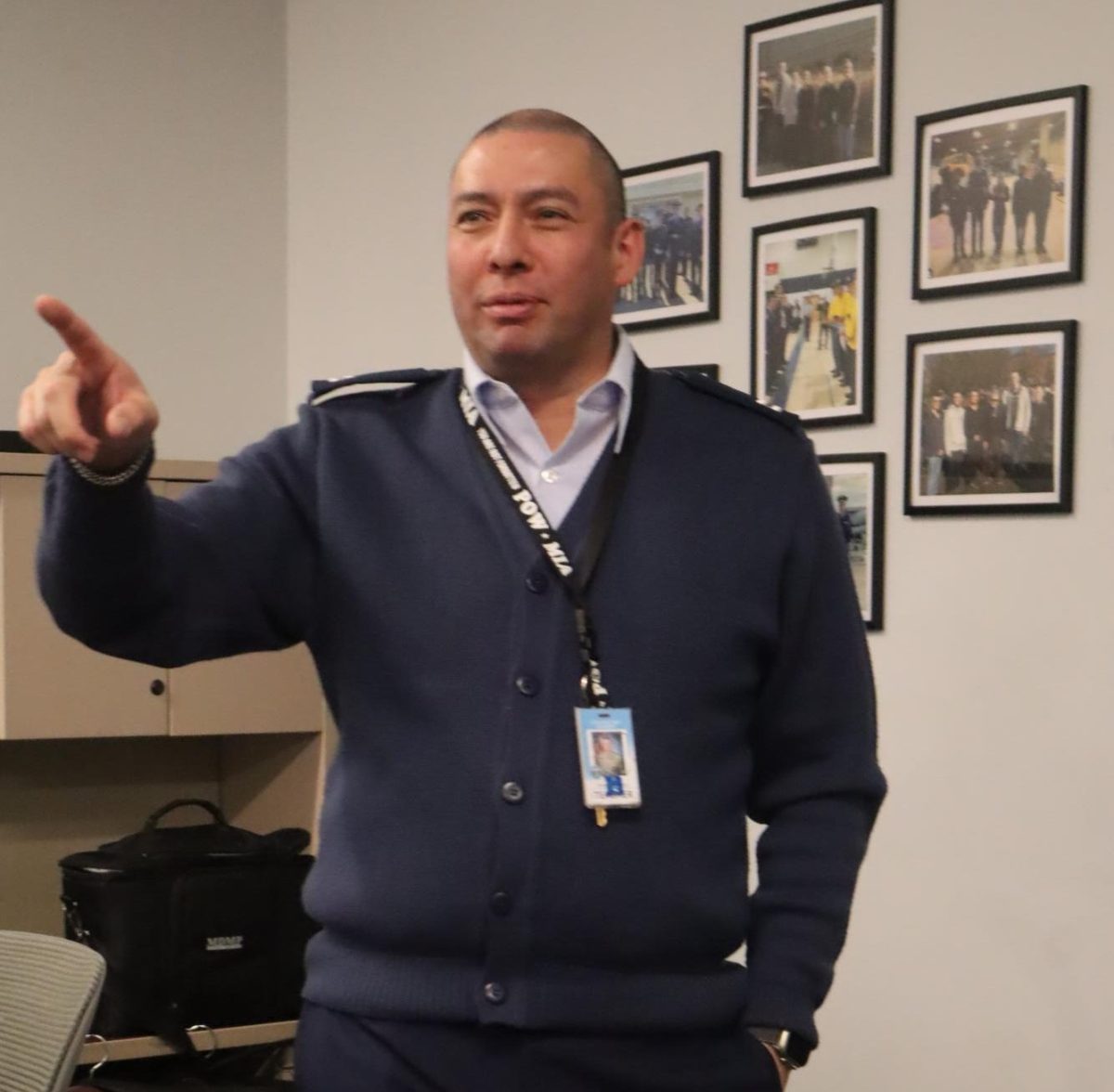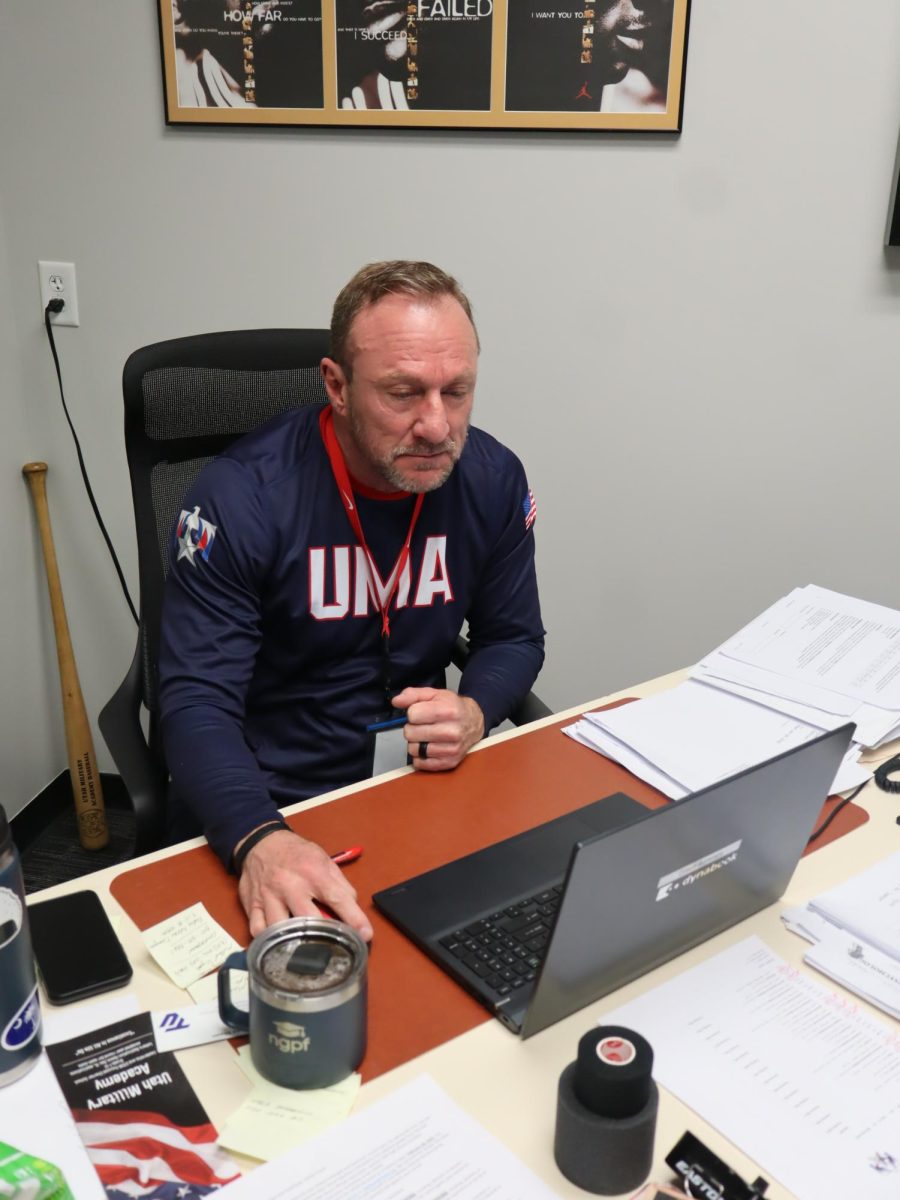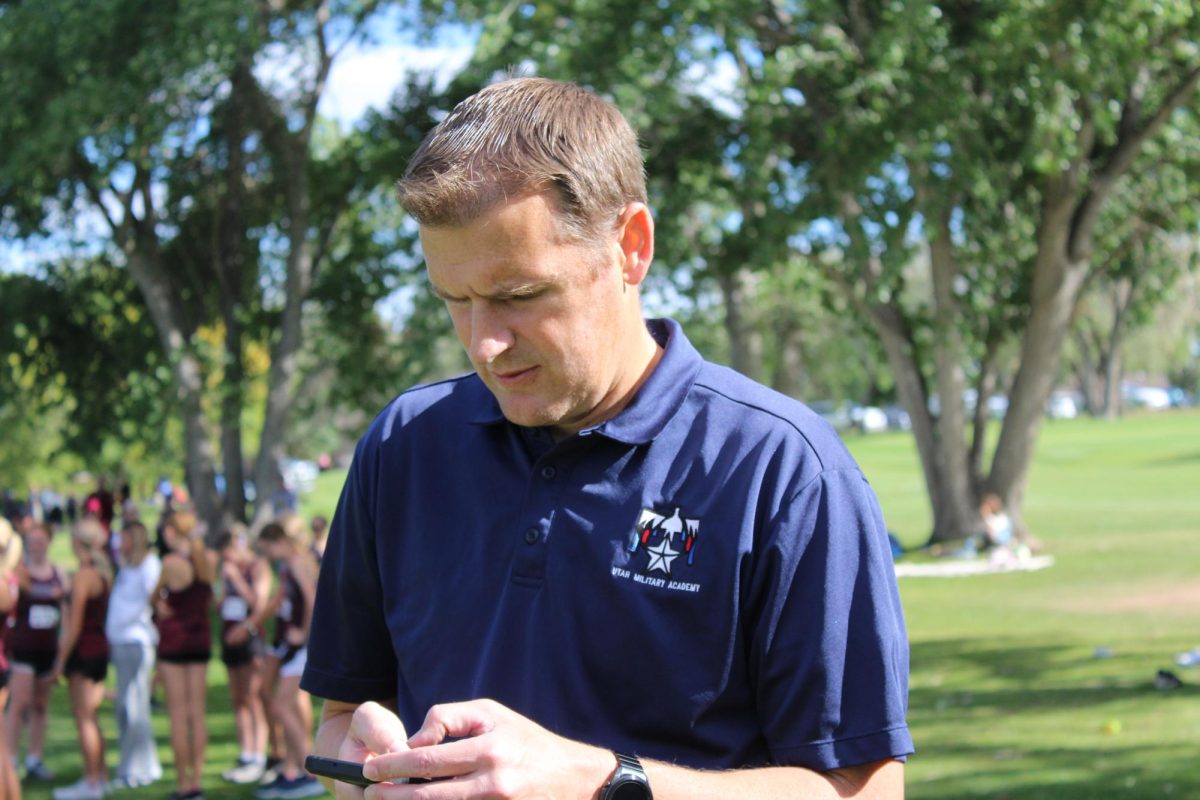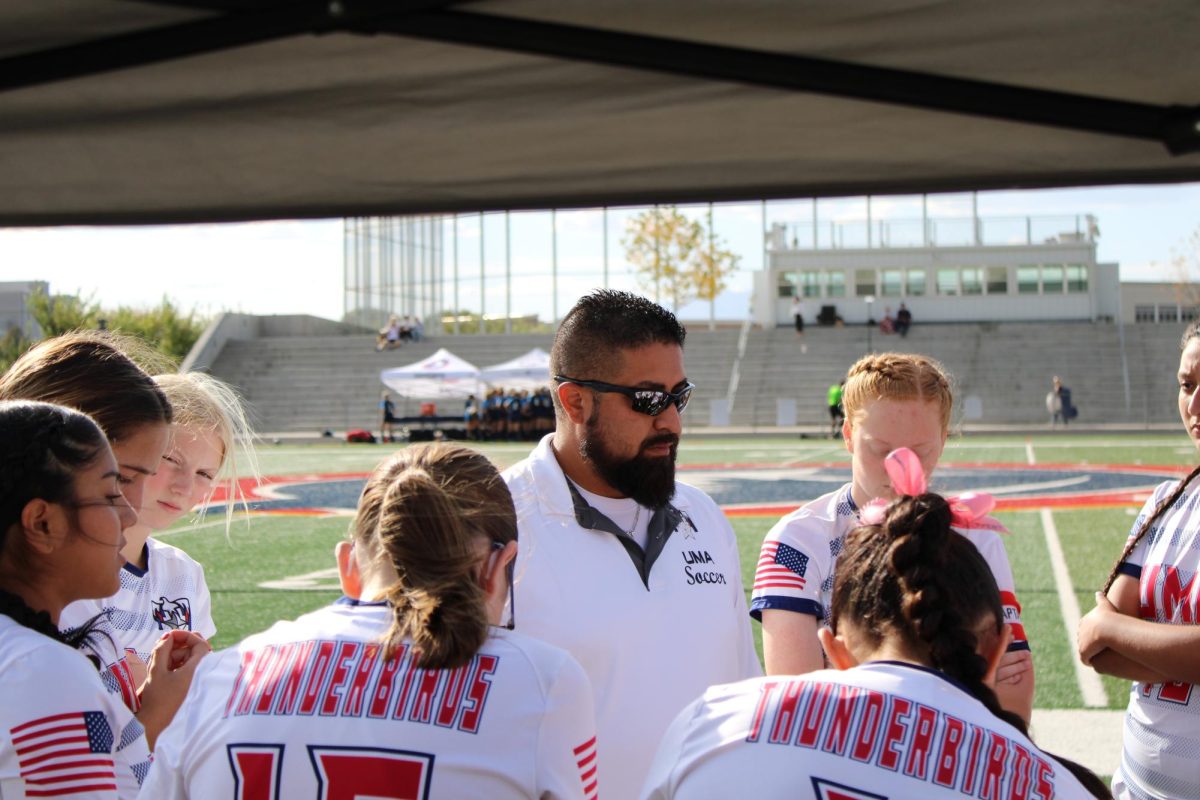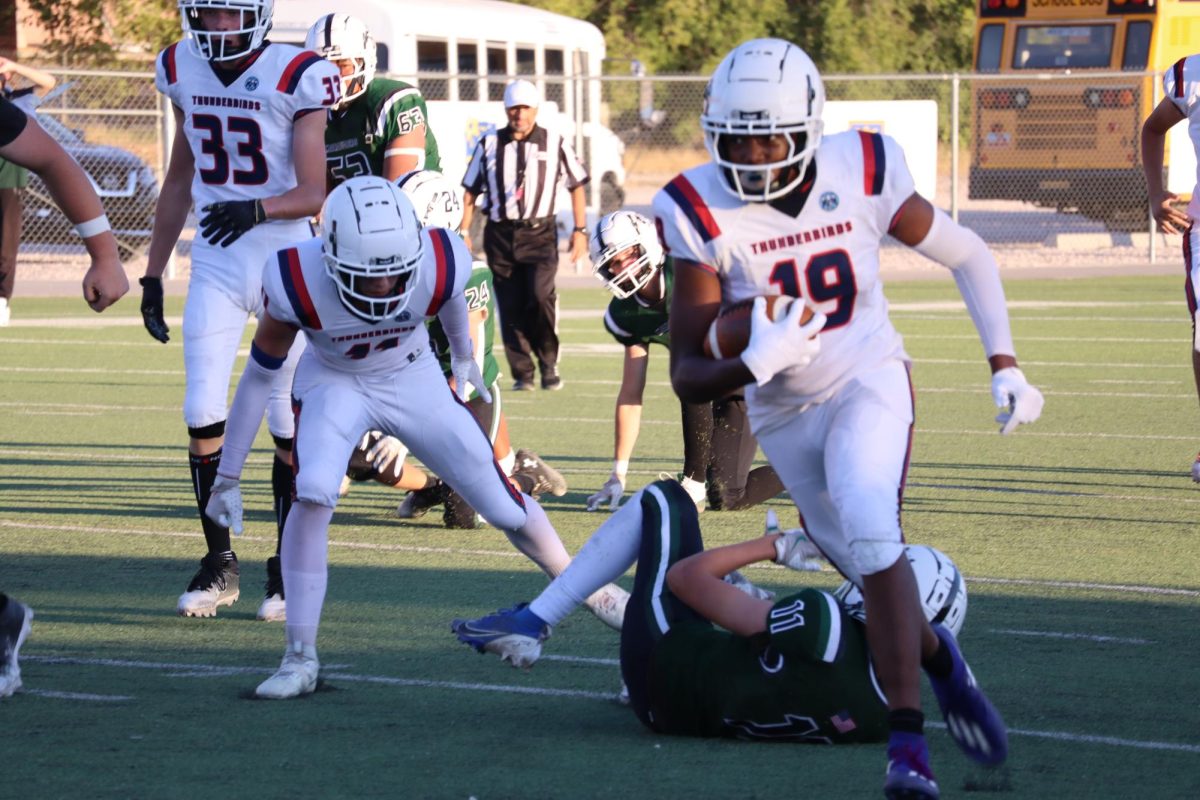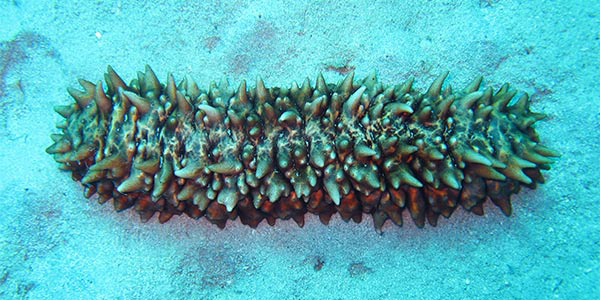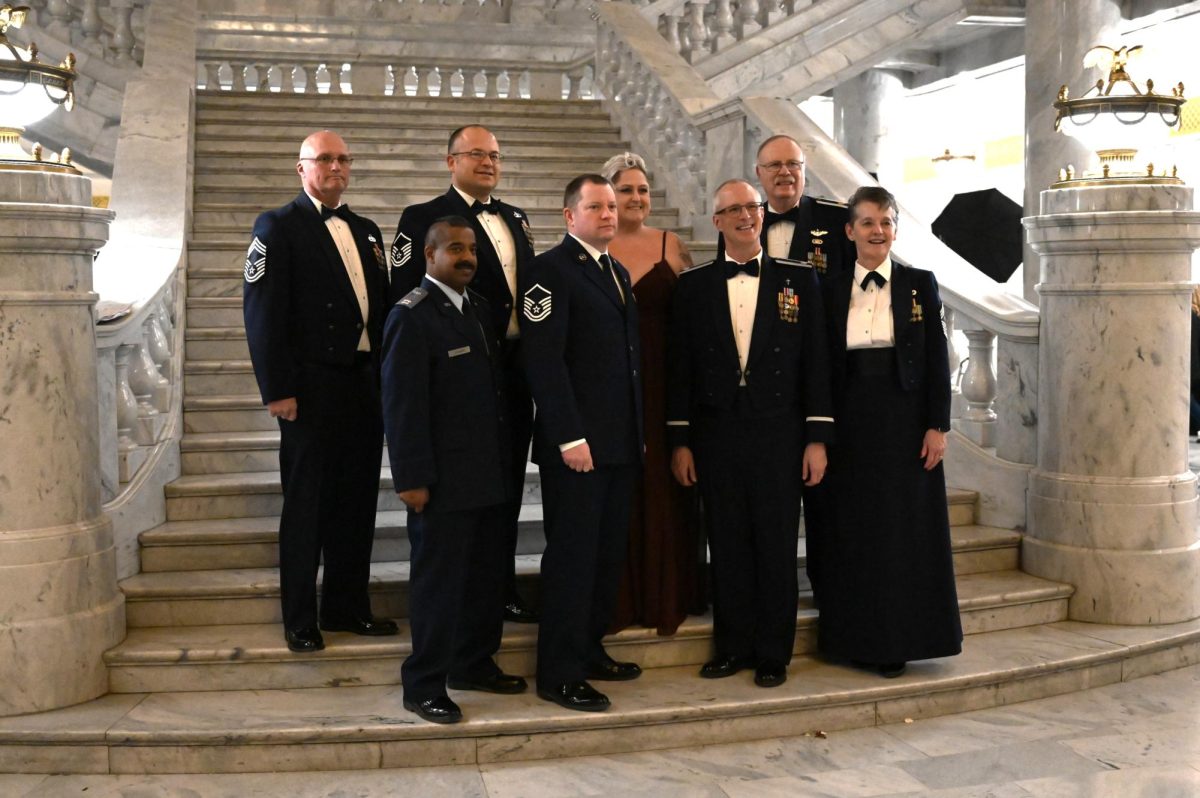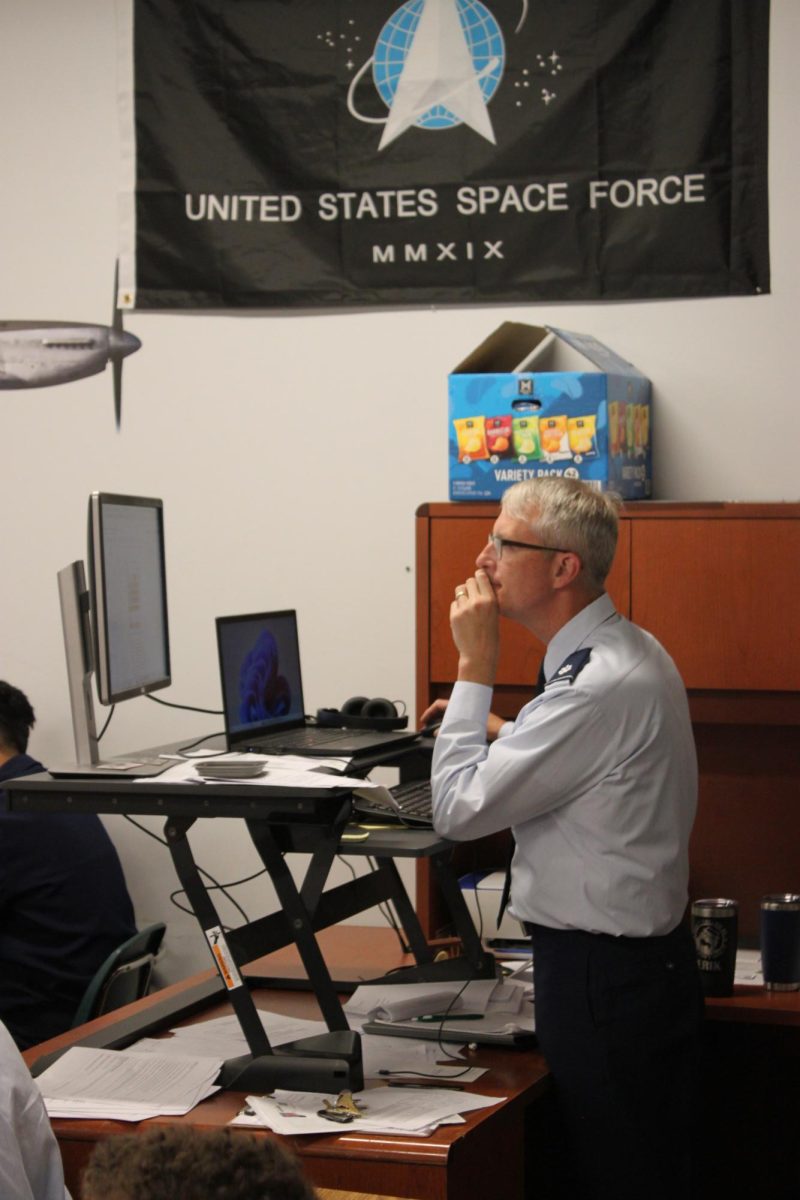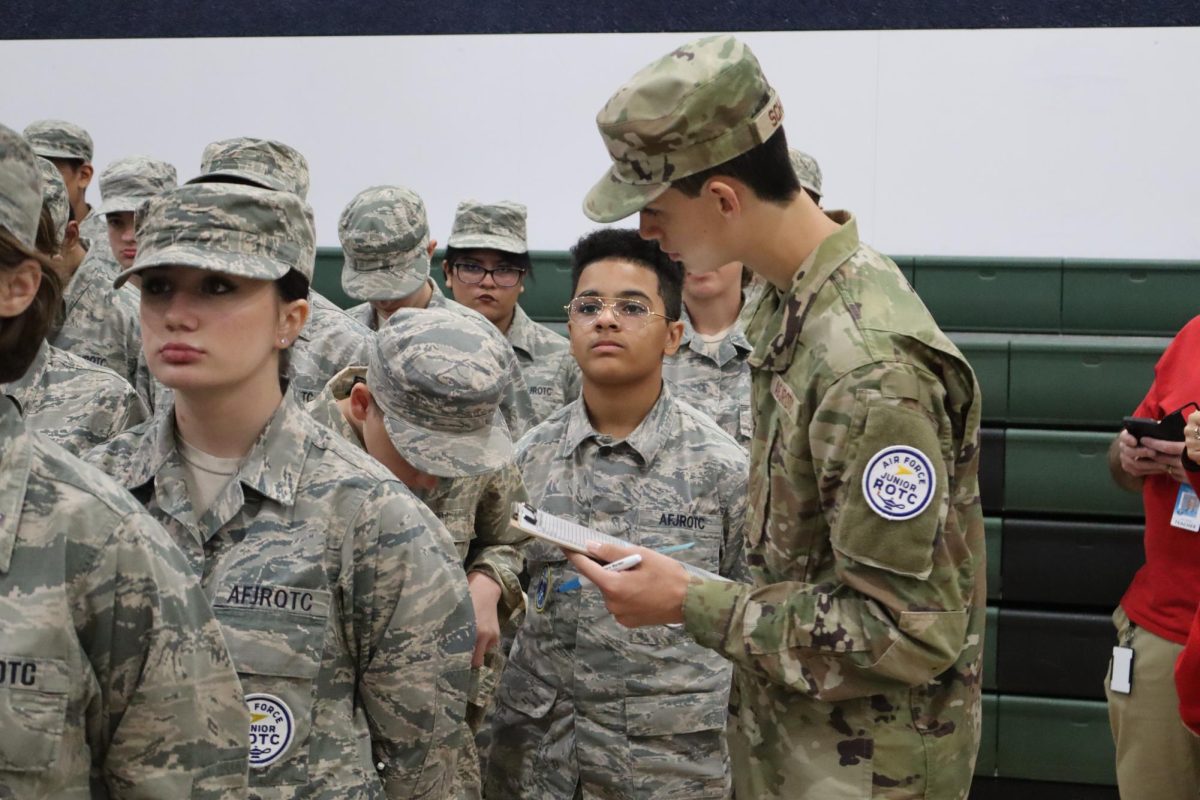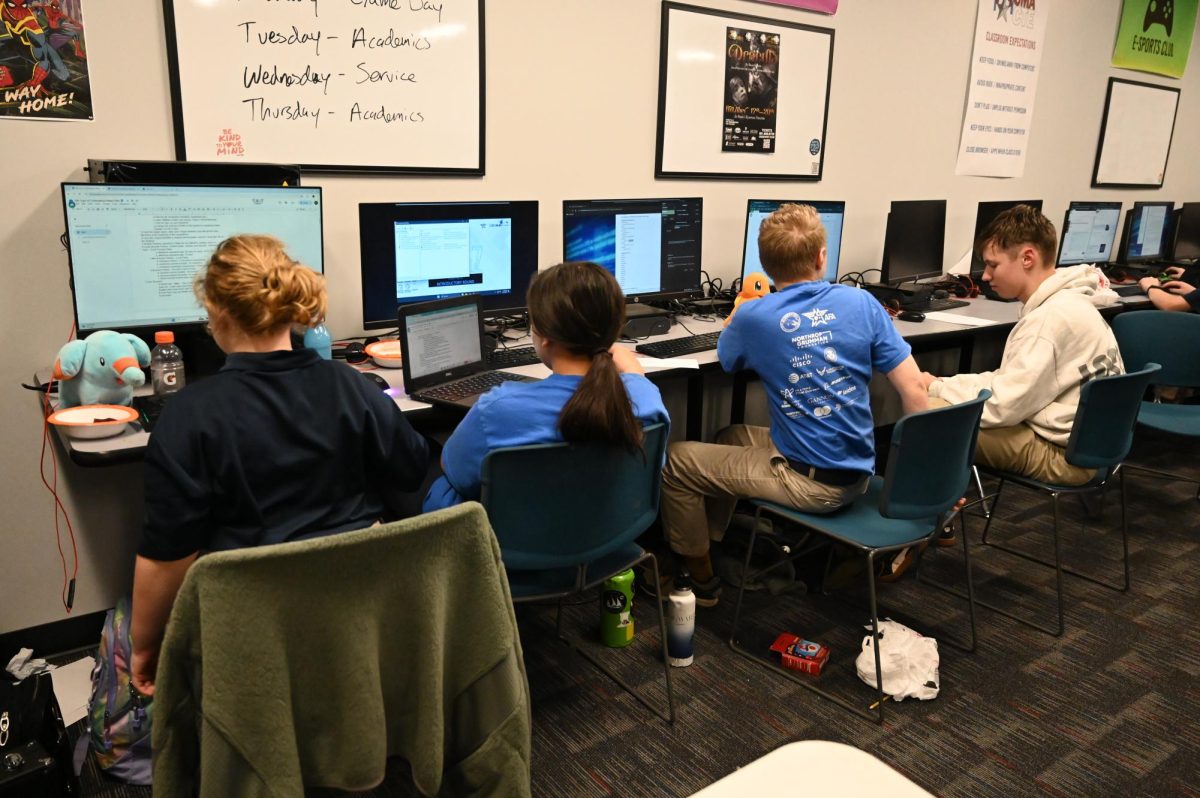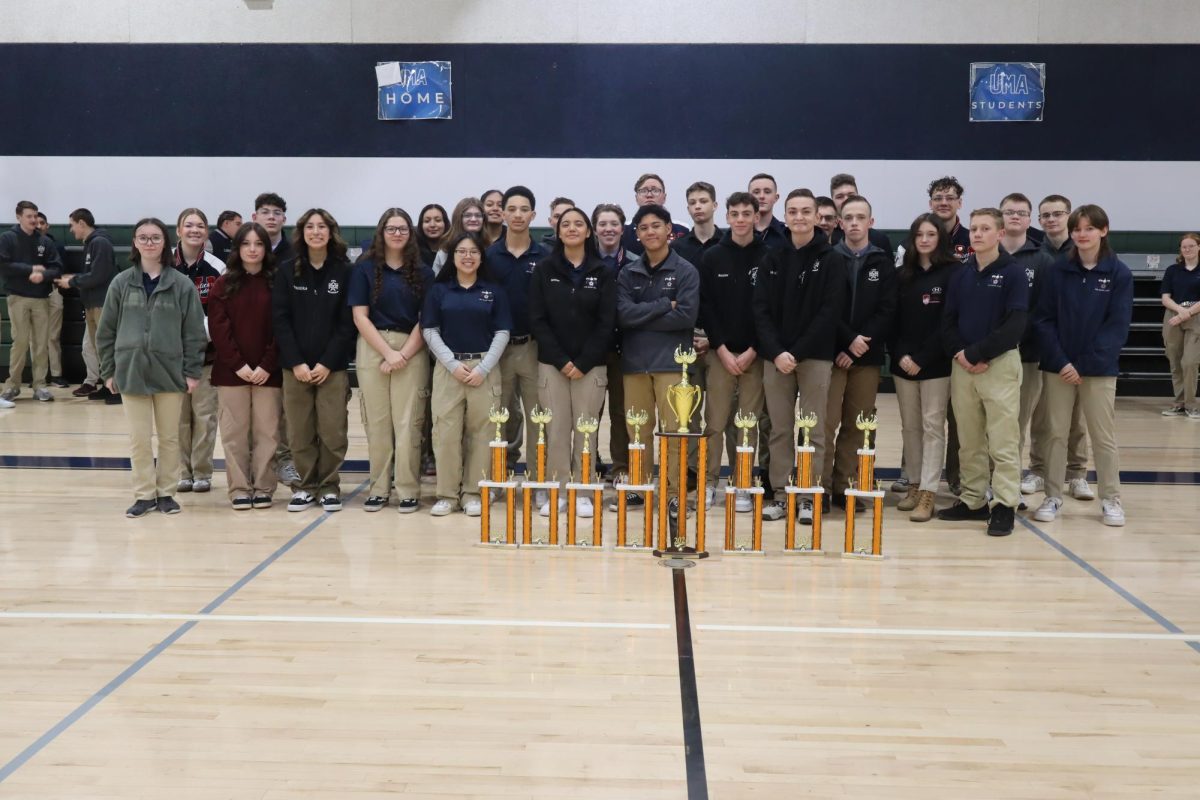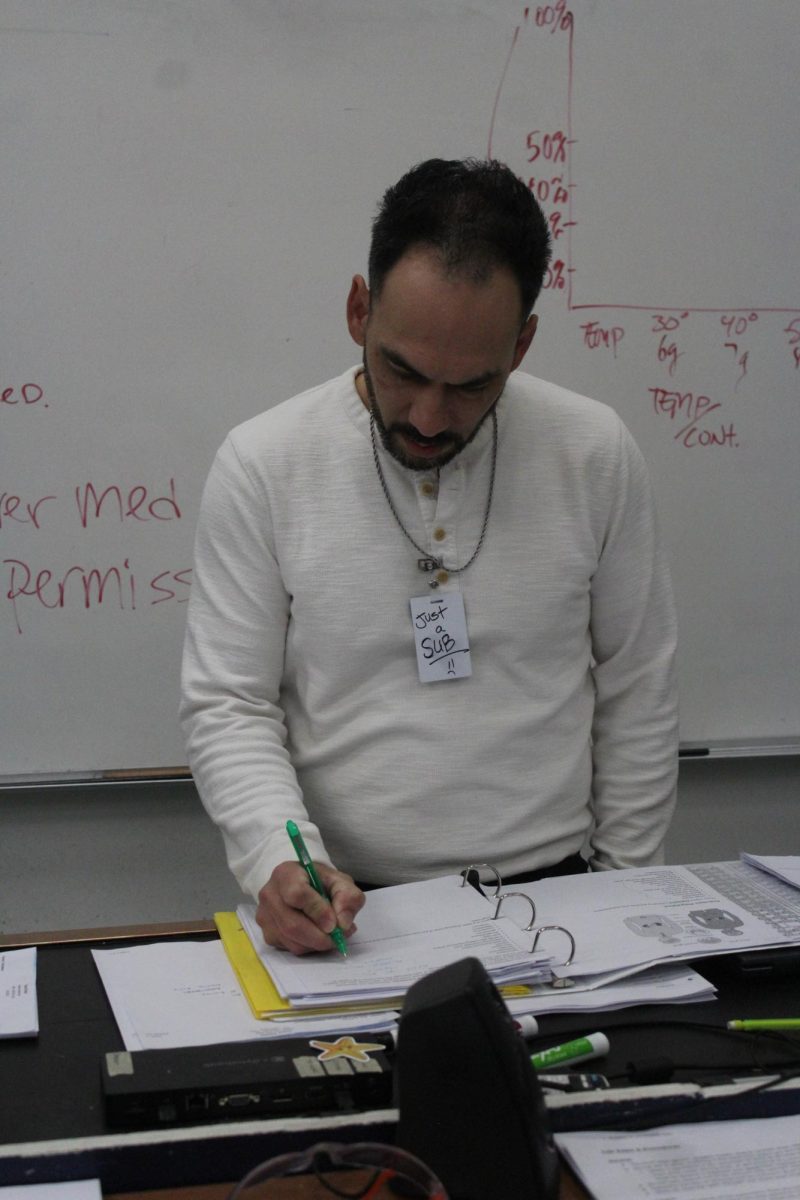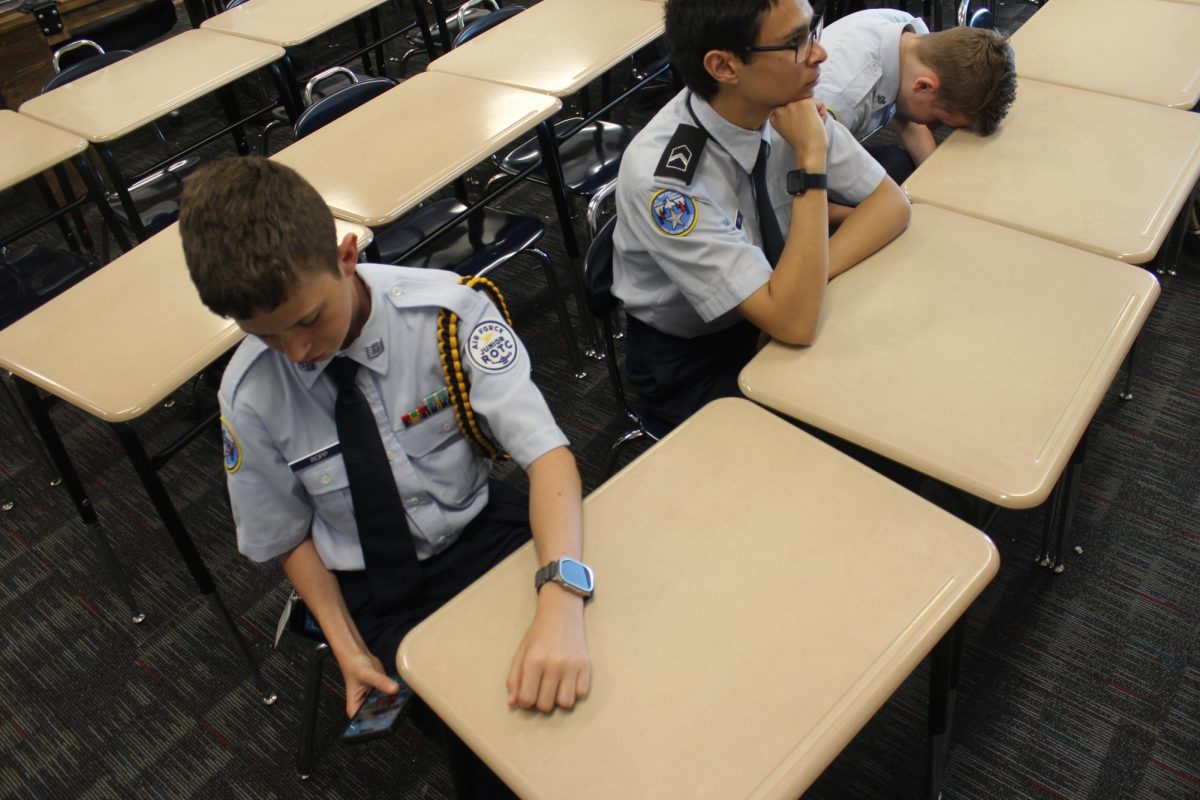When thinking about winter sports, working computers isn’t generally the first thing that comes to mind. Yet that’s one of the winter competitions that cadets may participate in, going by the name of CyberPatriots.
In CyberPatriots, fixing computers is the main topic. Whether it’s getting rid of viruses or removing discrepancies, that’s all part of Cyber. Cadets in CyberPatriots handle any software problem with a computer.
Overall, CyberPatriots’s purpose is to “teach students advanced cyber security concepts and to prepare them for a career in cyber security,” according to Mr. Storm, the instructor of CyberPatriots.
Those cyber security concepts allow cadets to better protect a computer from a multitude of threats–ranging from harmless to deadly. That’s where the CyberPatriots come in.
“[As CyberPatriots,] we protect computers from malicious software and malicious users, otherwise known as hackers,” said Mr. Storm. Though this plan can sound straightforward, there are some problems that the CyberPatriots teams can encounter. To better protect computers, cadets learn to work on different operating systems, like Windows and Linux.
Through experimenting on computers, and self-research, cadets learn “cyber security, problem-solving, stress management, and how to eat a bunch of junk food,” according to Mr. Storm. These skills are something that the Senior Members are very familiar with. Through the years the numerous competitions have been changing. In essence, however, the competitions remain the same.
“CyberPatriots competitions are chaotic, but they’re also a great time to work on your computer skills,” said Cadet Glenn.
Cadet Sophie Rodriguez also has a valuable insight into what CyberPatriots competitions are like. “They are usually very fun, but stressful at the same time, depending on when it is,” said Cadet Rodriguez.
On the other end of the spectrum, there is Cadet Allman, who has… more interesting insights into what occurs during a competition. “Sometimes you throw random stuff at the computer; computer, wall, same thing,” said Cadet Allman. Those actions have and do take place.
As with all teams, it is wise to spread the workload out to many different people. That way one person isn’t swamped. On each team, tasks are usually delegated one per member. Cadet Allman is the senior-most member of the team, meaning that he usually has “ the most advice to offer,” to pull from Cadet Allman himself.
Cadet Glenn, on the other hand, is more hands-on with the computer instead of giving advice. “On my team, I work on Linux, usually by staring at many different strings of text and wondering ‘why are you broken?’,” said Cadet Glenn.
The last person to give input was Cadet Rodriguez, who breaks the conventional one task per member. However, there is a reason for it as she is the backup. “I am the backup or researcher. I also do windows,” said Cadet Rodriguez.
Besides the three previously mentioned cadets, Cadet Kendrick and Cadet Hart also work on their parts of the competition. Cadet Kendrick works on Cisco Packet Tracer, which is essentially building a virtual server. Cadet Hart works on Windows Server, which is a version of Windows meant for storing information.
During Cyber practice, the members of the different teams work on different things to assist them during competitions. Cadet Allman is the leader of the senior team, and that means he is often the one making the plans. “I assist in the creation of attack plans and how to future-proof,” said Cadet Allman.
Cadet Glenn, during practice, often tries to teach the other teams, specifically those that do Linux, tips and tricks. A recent one is how to write a program that does most of the work on its own. “Aside from Linux, I make scripts to make my life easier during competitions. I also try to teach other people how to make these Linux scripts,” said Cadet Glenn.
Alongside cadets Allman and Glenn, the other team members research their tasks as to eliminate as many unknowns as possible during competition. Cadet Rodriguez is often an extra researcher who helps the rest of the senior team learn what they need.
As shown by Cadet Rodriguez, there is some level of coordination between the different members. Though it isn’t teamwork in the traditional sense. “With our team, there is less teamwork with those working on individual systems. However there is a lot of coordination, which is where I would say most of the teamwork lies,” said Cadet Glenn.
Most of the time, the most teamwork is between the researcher and the rest of the team. Those working on individual computers don’t often interact with each other. Yet that also varies depending on the experience of the members, as well as those who are on the team.
“[T]he amount of teamwork involved is entirely dependent on the team,” said Cadet Allman.
“Well, I would say a lot, but none at the same time because we are all doing different things to earn points for the same team,” said Cadet Rodriguez. As Cadet Rodriguez says, there is an inherent level of teamwork as the whole team is working towards gaining points as a whole. Though, because they are working individually there is also some disconnect between the members.
Working on a computer for hours be boring, though sometimes interesting stories are born out of said boredom. The senior members of Cyber have started to accumulate such stories as they have continued to participate in Cyber.
The three members that have been giving quotes for this article have also shared three interesting events that have occurred throughout their time. “One of our senior members kicked in a bathroom stall during a competition once,” said Cadet Allman.
This previous experience is proof of how hectic CyberPatriots competitions can truly get. Of course, there are also times where they can get side tracked, and that can often lead to something like this next experience. “There was one time where someone made a sniffer cabinet, it’s still brought up to this day,” recounted Cadet Glenn.
Those stories are only part of what makes CyberPatriots an interesting team. However Cadet Rodriguez best sums up the experience of Cyber with her statement. “[W]e are always high on sugar or full of stressed energy that it makes us crazy,” says Cadet Rodriguez
In the end, CyberPatriots is one of the unique teams that UMA offers. Those that are part of CyberPatriots have drawn the previous members in. Then again, they were probably just coming for the junk food.
